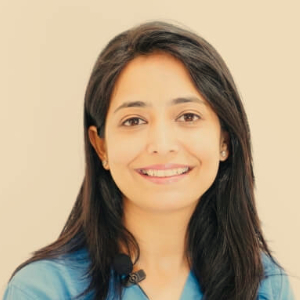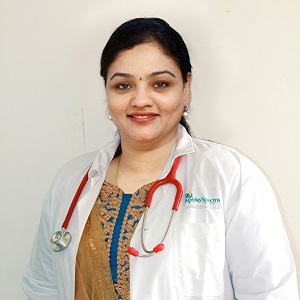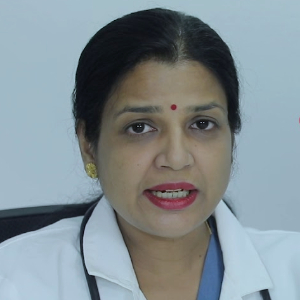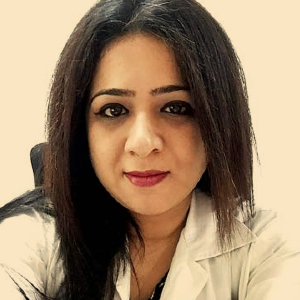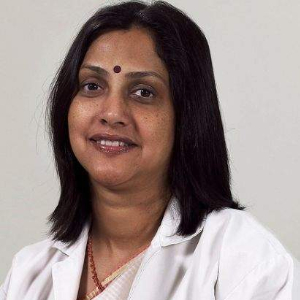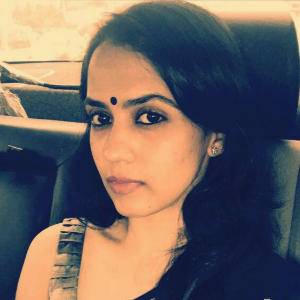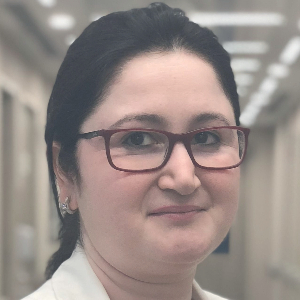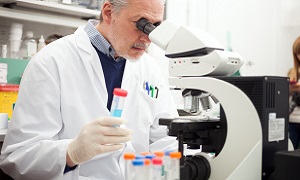Best Doctors in India for Genetic Testing
- IVF Specialist, Gynaecologist & Obstetrician; Mumbai, India
- Over 10 years’ experience
Profile Highlights:
- Dr. Ritu Hinduja is a renowned Infertility expert in Mumbai with experience in the management of infertility and reproductive medicine and has training in all assisted reproduction techniques (ART).
- She holds a Masters degree in Reproductive Medicine and also has a Diploma in the same field from Keil University in Germany.
- Dr. Hinduja’s primary interest lies in the management of patients with fertility issues that include low ovarian reserve and preserving fertility for cancer patients and women who want to delay childbearing by freezing eggs.
- Obstetrician & Gynaecologist, Chennai, India
- Over 22 years’ experience
Profile Highlights:
- Dr. Meenakshi Sundaram is a gynecologist and obstetrician in Chennai and has over 22 years of experience in these fields.
- She completed her MBBS from the Medical University (TNMGRMU) and Completed her MD in Obstetrics and Gynecology (Obstetrics and Gynecology) Medical University (TNMGRMU).
- Some of the services provided by the doctor are: Uterine Fibroid Treatment, Uterine Artery Ligation
- Obstetrician & Gynaecologist, New Delhi, India
- Over 39 years’ experience
Profile Highlights:
- Dr. Madhu Roy is one of the leading Gynecologists and Obstetricians in India, practicing successfully for about 39 years. Dr. Roy practices at Indraprastha Apollo Hospital as a Senior Consultant.
- She assists patients by treating Uterine Fibroids, ovarian cysts, Endometriosis, Robotic Surgery, Subfertility, Pelvic Organ Prolapse, Gynecological Cancers, and any other conditions with her experience.
- Dr. Madhu Roy also provides counseling on contraception, medical termination of pregnancy, biopsies, laparoscopic surgery, and fertility preservation procedures.
- IVF Specialist & Gynaecologist, Bengaluru, India
- Over 15 years’ experience
Profile Highlights:
- Dr. Pallavi Prasad is a well-known Gynecologist in Bengaluru specializing in infertility and IVF.
- Dr. Prasad is a specialist in all kinds of Artificial Reproductive Techniques (ART) including IVF, ICSI, IUI, and IMSI. She also provides services for vitrification and cryopreservation.
- Dr. Pallavi Prasad has also written articles and papers on her field of expertise and has published several columns on infertility and ART in renowned journals and newspapers.
- IVF Specialist & Gynaecologist, Mumbai, India
- Over 24 years’ experience
Profile Highlights:
- Dr. Sulbha Arora is a well-known Gynecologist and Obstetrician and an Infertility Specialist in Mumbai currently working with Nova IVI Fertility.
- She has 24+ years of experience in IVF and Assisted Reproductive Techniques (ART) and has helped a large number of women enjoy the happiness of motherhood.
- Her primary area of focus includes fertility medicine, fertility preservation, third-party reproduction, and ultrasound.
- IVF Specialist & Gynaecologist, Bengaluru, India
- Over 25 years’ experience
Profile Highlights:
- Dr. Aviva Pinto Rodrigues is a Consultant in Gynecology and Infertility and has an extensive experience of over 2 decades in Reproductive Medicine and holds a Diploma in the field from the University of Kiel in Germany.
- Her expertise lies in all forms of ART including IVF, IUI, ICSI, IMSI, and also finds interest in the treatment of genital tuberculosis and reproductive endocrinology.
- Obstetrician & Gynaecologist, Gurugram, India
- Over 30 years’ experience
Profile Highlights:
- Dr. Anjali Kumar is a renowned gynecological endoscopic surgeon, who has done certificate courses as well as training at the World Association of Laparoscopic Surgeons and Ethicon Endosurgery Institute in New Delhi.
- Her technique was presented, published, and also accepted at the apex national conference at the Kumar’s Technique. She has also featured in several talk shows in different shows in multiple TV channels like NDTV, Doordarshan, The People, Khabrein Aaj Tak, etc.
- IVF Specialist & Gynaecologist, Mumbai, India
- Over 17 years’ experience
Profile Highlights:
- Dr. Sneha Sathe is a consultant gynecologist and infertility specialist in Mumbai and associated with Nova IVI Fertility.
- She has close to a decade of experience in the field of ART and Reproductive medicine and has achieved several successful pregnancies through IVF, IUI, ICSI, and other techniques of assisted reproduction.
- Dr. Sneha Sathe finds special interest in mild IVF and is also experienced in other aspects of gynecology such as management of PCOS, recurrent implantation failure, endometriosis, and failed IVF cycles.
- IVF Specialist & Gynaecologist, Gurugram, India
- Over 18 years' experience
Profile Highlights:
- Dr. Meenakshi Dua is a well-known gynecologist in India specializing in IVF and Infertility.
- She has an experience of 18+ years in the field of infertility treatment and has helped a large number of people with infertility issues.
- Dr. Meenakshi Dua is an expert in all kinds of Assisted Reproductive Technology and is highly trained in reproductive endocrinology, fetal Doppler, and advanced-level ultrasounds in gynecology and obstetrics.
- Obstetrician & Gynaecologist, New Delhi, India
- Over 20 years’ experience
Profile Highlights:
- A qualified and reputed medical practitioner Dr. Asawari Kesari Kapoor is among the celebrated gynecologists and obstetrician doctors in Delhi. With years of experience, she is proficient in identifying, diagnosing, and treating various health issues and problems related to her field.
- Dr. Asawari Kesari Kapoor completed her MBBS from the University of Mumbai, in 1999, and her DGO from the same university in 2002.
- She later got her diploma in Gynecology and Obstetrics from the College of Physicians and Surgeons in 2004. She is currently practicing as a Senior Consultant at Indraprastha Apollo Hospitals.
Best Hospitals in India for Genetic Testing
Pushpawati Singhania Hospital & Research Institute, New Delhi
- City: New Delhi, India
Hospital Highlights:
- Established in 1996, Pushpawati Singhania Research Institute is one of the top hospitals in the NCR region, as well as one of the top facilities in India for gastroenterology. The hospital is one of South Asia’s first institutes in medical and surgical treatment for diseases related to digestion.
- The hospital is equipped with state-of-the art facilities coupled with the latest equipment as well as renowned consultants from various parts of India as well as other parts of the world.
W Pratiksha Hospital, Gurgaon
- City: Gurugram, India
Hospital Highlights:
- W Pratiksha Hospital, Gurugram, is one of the best hospitals in the NCR region. It is also a top hospital in India for IVF. Since its inception, the hospital has performed over 5500 successful IVFs. The hospital also specializes in gynecology.
- With over 20 years of experience in providing quality healthcare, the hospital is known as one of the most trusted and valued health providers in India.
- Equipped with world-class medical facilities and advanced technology, the hospital’s doctors and clinicians also have a track record of delivering excellent results. The hospital is also known for focusing on preventive well-being as much as on curative treatment.
- The hospital has earned the trust of its patients, by providing the best available treatments at affordable costs.
Narayana Superspeciality Hospital, Gurugram
- City: Gurugram, India
Hospital Highlights:
- Situated near DLF Cyber City, Gurugram, Narayana Superspecialty Hospital is one of the top medical facilities in the Delhi NCR region, catering to the needs of the people. Known for its commitment to quality medical care and patient service, the hospital is a state-of-the-art facility with planned and well-equipped sections, which includes a spacious OPD area as well as comfortable patient rooms.
- It is the closest super-specialty hospital from Indira Gandhi International Airport towards Gurugram, and also the nearest super specialty hospital from DLF Cyber City. It is also close to major residential areas in Gurugram.
- It is part of the renowned Narayana Health Group. Established in 2000, by Dr. Devi Shetty, a renowned cardiac surgeon, it has grown to be one fo India’s leading healthcare groups.
Sir Ganga Ram Hospital, New Delhi
- City: New Delhi, India
Hospital Highlights:
- Sir Ganga Ram Hospital, New Delhi is known to provide the latest medical procedures with the latest technology in all of its units.
- The hospital has a team of reputed doctors, nurses, and healthcare professionals that ensure that patients receive quality care at affordable costs.
- Staffed with a team of highly qualified doctors, dedicated nurses, and paramedical and non-medical staff, the hospital aims to lead in healthcare delivery, medical education, training, and research.
- As per the vision of the founder, the hospital also provides free treatment to the economically weaker sections of society.
- Sir Ganga Ram Hospital also provides training to young doctors under the Diplomate in National Board(DNB) program. The DNB program at the hospital was started in 1984 and it is known for currently running the maximum number of DNB specialties in the country. It also has the distinction of having the first bone bank in India.
CK Birla Hospital, Gurugram
- City: Gurugram, India
Hospital Highlights:
- The CK Birla Hospital in Gurugram is a NABH-accredited multi-specialty hospital.
- The hospital strives to increase the quality of healthcare by focusing on UK NHS nurse and midwife training requirements. Policies and practices derived from the National Institute for Health and Treatment Excellence (NICE) recommendations in the United Kingdom ensuring that a strong focus on safety, high-quality clinical care, and sanitation is maintained.
- The hospital’s cutting-edge technology and facilities allow for real-time communication and seamless collaboration among caregivers, ensuring accuracy and the best possible results. Those with foreign experience and accreditations make up part of the hospital’s team of clinicians.
KIMS Hospital, Hyderabad
- City: Hyderabad, India
Hospital Highlights:
- KIMS Hospital (a brand name of Krishna Institute of Medical Sciences) is one of the largest and best multi-speciality hospitals in Hyderabad. The hospital provides various treatments to an enormous number of patients.
- The hospital has a capacity of more than 3000 beds. KIMS Hospitals offers different healthcare services in more than 25 specialities and super specialities.
- The hospital is equipped with modern medical equipment and technology. It has robotic equipment to provide minimal invasive techniques for patients.
- The hospital is aimed at providing world-class healthcare facilities and services at an affordable cost for patients.
- The various specialities and departments of the hospital include neurosciences, gastroenterology & hepatology, robotic science, reproductive sciences, dental science, oncological sciences, organ transplantation, heart and lung transplantation and mother and child care.
Fortis Hospital, Shalimar Bagh
- City: New Delhi, India
Hospital Highlights:
- Fortis Hospital in Shalimar Bagh is a multi-super specialty hospital that strives to provide world-class patient care by leaving no stone unturned.
- Fortis, Shalimar Bagh, with 262 beds and a 7.34-acre footprint, provides the best level of medical care through its team of doctors, nurses, technicians, and management professionals.
Reliance Hospital, Mumbai
- City: Mumbai, India
Hospital Highlights:
- Reliance Hospital is one of the best super-specialty care hospitals in Navi Mumbai.
- The main purpose of this hospital is to become a trustworthy place for the best health and hope for society. The hospital is well connected to the suburbs of Mumbai and Navi Mumbai.
- The hospital has various specialty departments, viz., Accident & Emergency, Anesthesiology, Dental Services, Dermatology, Diabetology, Dietetics Nutrition, Endocrinology, ENT, Gastroenterology, General Surgery, Gynaecology And Obstetrics, Hepato Pancreato Biliary Surgery, Infectious Disease, Internal Medicine, Interventional Radiology, Laboratory Medicine, Minimal Access Laparoscopic Surgery, Nephrology, Neurosciences, Opthalmology, Orthopaedics, Paediatrics, Pain Management Palliative Care, Physical Medicine Rehabilitation, Plastic And Reconstructive Surgery, Psychiatry, Pulmonary Medicine, Radiology, Rheumatology, Transplant, Urology Andrology, Vascular Surgery
Lilavati Hospital & Research Centre, Mumbai
- City: Mumbai, India
Hospital Highlights:
- Lilavati Hospital & Research Centre is India’s premier multi-speciality tertiary care hospital and has been recognised as a global medical excellence centre.
- Lilavati Hospital & Research Centre has built an unrivalled level of trust with its patients over the years, thanks to a solid foundation that comprises cutting-edge facilities, the best medical competence, research, education, and charity endeavours.
- The hospital is quite proud of the fact that it now serves patients from all kinds of backgrounds, not just from the United States but from all around the world.
- The hospital has a total of 323 beds, one of the largest Intensive Care Units (ICUs), 12 Operation Theatres with modern amenities, over 300 consultants, and almost 1,800 personnel.
Venkateshwar Hospital, Dwarka, New Delhi
- City: New Delhi, India
Hospital Highlights:
- State-of-the-art technology and devoted healthcare professionals have been brought together under one roof at Venkateshwar Hospital to provide genuine medical care. The hospital’s professionals work together as a team to deliver the best possible treatment to their patients, using the most sophisticated equipment and information technology.
- Venkateshwar Hospital’s mission is to attain global excellence in healthcare by employing evidence-based, ethical clinical practices and cutting-edge technology by a team of highly skilled experts.
Genetic Testing
Genetic testing is a procedure for examining your DNA. Your DNA is your chemical database which carries instructions for the functions of the body. Genetic testing can reveal any changes in your genes which can lead to any illness or disease.
Genetic testing is able to provide significant information for diagnosing, treating as well as preventing illness, but there are few limitations. For example, for a healthy person, a positive result from genetic testing doesn’t always mean that you’ll be developing a disease. In some other cases, a negative result doesn’t always guarantee that you won’t have any disorder either.
Talking to your doctor, a medical geneticist or a genetic counselor about what you will do with the results is an important step in the process of genetic testing.
Purpose
Genetic testing plays a very important role in determining the risk of developing certain kinds of diseases. It can also play a significant role in screening and sometimes even in medical treatment. There are different types of genetic testing which are done for different reasons:
Diagnostic testing- If you have symptoms of a disease that may be caused by genetic changes, sometimes called mutated genes, genetic testing can reveal if you have the suspected disorder. For example, genetic testing may be used to confirm a diagnosis of cystic fibrosis or Huntington’s disease.
Carrier testing- If you have a history in your family of a genetic disorder, such as sickle cell anemia or cystic fibrosis or if you belong to an ethnic group having a higher risk of a certain genetic disorder, you can choose to have genetic testing before reproduction. An expanded carrier screening test is able to detect genes associated with a wide variety of genetic diseases and mutations. It can also identify if you and your partner are carriers for the same conditions.
Pharmacogenetics- If you have a particular disease or condition, genetic testing can help in determining what medication and dosage will be effective and beneficial for you.
Presymptomatic and predictive testing- If you have a history of a genetic condition in your family, you can get genetic testing before you show any symptoms. This can reveal if you’re at risk of developing that condition as well. This type of test can be useful in identifying your risk of certain types of colorectal cancer.
Prenatal testing- For women who are pregnant, genetic tests can help in detecting any type of abnormalities in your baby’s genes.
Preimplantation testing- Also termed as preimplantation genetic diagnosis, you can consider this test when you attempt to conceive a child through in vitro fertilization. The embryos are screened for genetic abnormalities. Embryos that are without any abnormalities are implanted in the uterus for achieving pregnancy.
Newborn screening- This is a common type of genetic testing. In the US, all states require newborns to be tested for certain genetic and metabolic abnormalities that might lead to specific conditions. This type of testing is important because if a disorder is detected, treatments can begin immediately.
Preparation
Before you go for genetic testing, it is important to gather information about your family’s medical history as much as possible. After this, you need to talk with your doctor or genetic counselor about your personal and family medical history to understand your risk better. You can ask questions as well as discuss any concerns about genetic testing at the meeting.
If you’re getting tested for a genetic disorder that runs in families, you can consider discussing your decision for undergoing genetic testing with your family.
It is also important to note that not all health insurance policies pay for genetic testing. Therefore, you should check with your insurance provider, if you will be covered.
Procedure
Depending on the type of test you are undergoing, a sample of your blood, skin, amniotic fluid or any other tissue will be collected. It will then be sent to a laboratory for analysis.
Blood sample
Cheek swab
For some tests, a swab sample is collected from the inside of the cheek.
Amniocentesis
Amniocentesis is a prenatal genetic test, where your doctor inserts a thin, hollow needle through your abdominal wall and into your uterus for collecting a small amount of amniotic fluid for testing.
Chorionic villus sampling
Chorionic villus sampling is another prenatal genetic test, where your doctor takes a tissue sample from the placenta. Depending on your situation, the sample may be taken with a tube, also known as a catheter or through your cervix or through your abdominal wall and uterus with the help of a thin needle.
Results
The amount of time it takes for you to receive the results of your test can vary. Usually, it depends on the type of test and your healthcare center.
If the results are positive, that means that they detected the genetic change that was being tested for. If you receive a positive test, the steps you need to take will depend on the reason you had the testing.
If the purpose is to:
Diagnose a specific disease or condition, then a positive result helps you and your doctor to determine the right treatment as well as the management plan.
Find out if you carry a gene that can cause any disease in your child, then your doctor, medical geneticist or a genetic counselor can help you determine how likely it is for your child to actually develop the disease. The test results can provide information which you along with your partner can consider when you make family planning decisions.
Determine if you might develop a certain disease, then you need to keep in mind that a positive test doesn’t necessarily mean you’ll get that disorder. For example, having a breast cancer gene doesn’t indicate that you will certainly be getting breast cancer. However, it means you’re at high risk of developing it at some point in your life. However, with some conditions, such as Huntington’s disease, if you have the altered gene it does indicate that the disease will develop eventually.
Talk to your doctor about what your positive result could mean for you. In some cases, you can make certain lifestyle changes for reducing your risk of developing a disease. The results can also help you make choices related to your treatment plan, family planning, careers as well as insurance coverage.
Plus, you may also choose to take part in research or registries related to your genetic disorder or condition. These options can help you stay updated with any new developments in prevention and treatment.
Negative results
A negative result means that a mutated gene was not detected in your test. This can be reassuring, though it is not a 100 percent guarantee that you will not be having the disorder. The accuracy of genetic tests for detecting mutated genes can vary and it generally depends on the condition which is being tested for and whether or not the gene mutation was identified previously in a family member.
Even if you don’t have the mutated gene, this also doesn’t necessarily mean that you will never be getting the disease. For example, the majority of people who develop breast cancer don’t have a breast cancer gene. It is also noteworthy that genetic testing can’t detect all genetic defects.
Risks
There is generally almost no physical risk in genetic testing. However, prenatal testing such as amniocentesis can sometimes have a risk of pregnancy loss, i.e. miscarriage.
Genetic testing can lead to emotional, social and financial risks as well. Discuss the risks as well as the benefits of genetic testing with a qualified doctor, a medical geneticist or a genetic counselor before you go for genetic testing.

